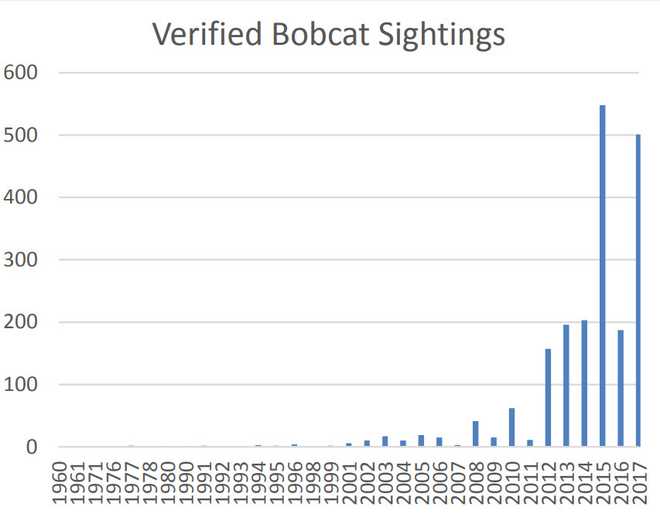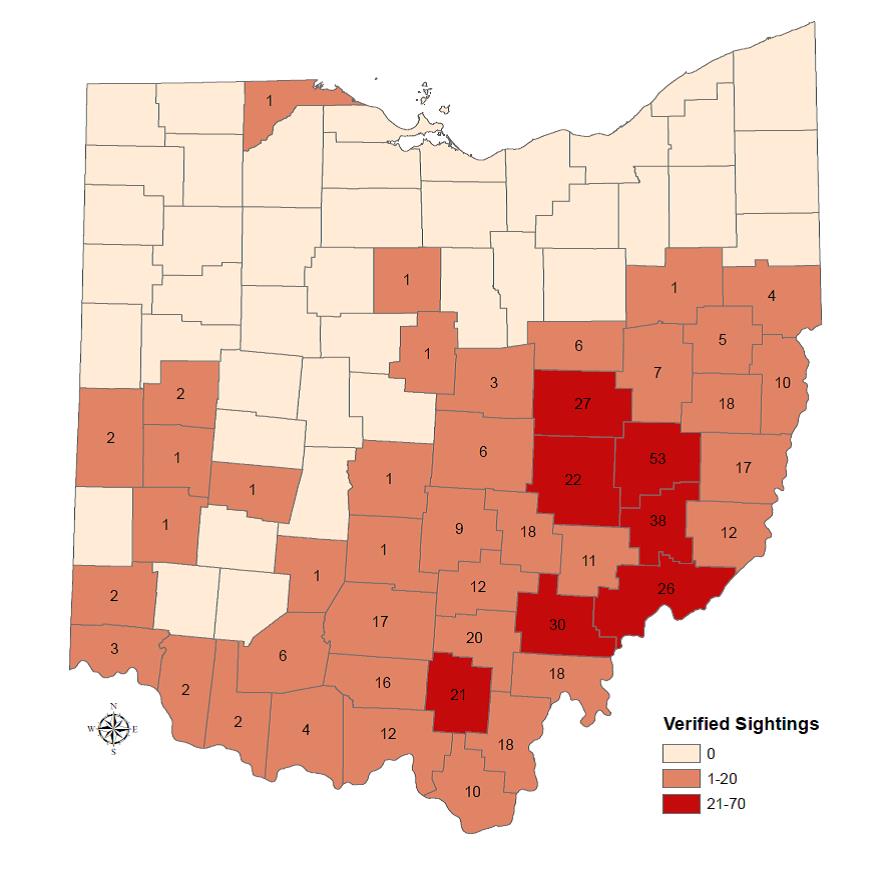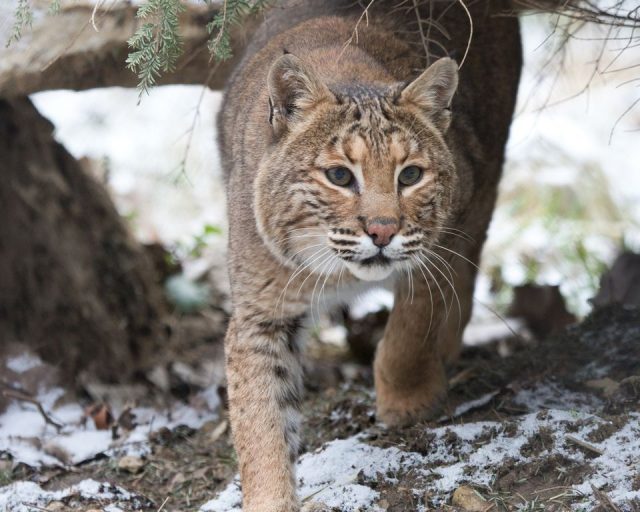OHIO – The Ohio Bobcat is making a comeback in Ohio, especially the South Eastern parts. Now ODNR is asking for feedback when you spot one of them.
According to the Ohio Department of Natural Resources Division of Wildlife, they verified 499 sightings of bobcats in 2017 the most recent report. Washington County residents reported the most at 26 in the State but other counties surrounding the county reported high numbers also.

Studies since the 1900s tells the tale of the Bobcat once being hunted to extirpation, but over the last twenty years sightings are up significantly. The last ten years spiking to numbers never recorded by ODNR.
What made the change? Bobcats came back to Ohio through a re-introduction program in the 1990s, Biologist Ryan Donnelly said, and they appear to be thriving. It is difficult to estimate the population through sighting reports, according to an ODNR report. That’s because many of them come in through the use of trail cameras, which in recent years have become cheaper and more common, so the increase in sightings could be the result of many more eyes on the trail rather than a dramatic increase in the number of animals.

“They’ve done really well in eastern Ohio, they have an expanding population. The habitat’s been good for them, there’s no hunting or trapping season, and they don’t have many predators,” he said.
Bobcats do not have many predators in the area either the closest thing that would try to take down a bobcat would be a wolf or a mountain lion and Ohio doesn’t have those in the area. Bears are not going to waste the effort.
There are no wolves anywhere even close, and bears, well, I just think of them as big raccoons. For a bear to take down a bobcat would be a ton of effort,” he said.
What does this mean? How will bobcats in your area affect you? Not too much Bobcats are carnivores looking for prey to pounce on like a large cat, but still prefer smaller items such as a wide variety of insects, reptiles, amphibians, fish, birds, and mammals. Rabbits and, in rare occasions, white-tailed deer are important components of the bobcat’s diet.
Generally if you see one bobcat you won’t see others, most of the time they are solitary animals not pack hunters like coyotes. If you do get the chance to see one make sure to report it to ODNR.
Help Ohio’s biologists research wildlife, like this bobcat, by submitting official sighting reports online: ![]() http://ow.ly/OpMZ50DC0Ja#wildohio Verified sightings are entered in the ODNR wildlife database, which helps the agency determine populations and the needs of the animals.
http://ow.ly/OpMZ50DC0Ja#wildohio Verified sightings are entered in the ODNR wildlife database, which helps the agency determine populations and the needs of the animals.








